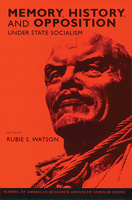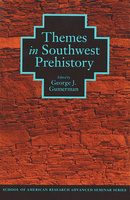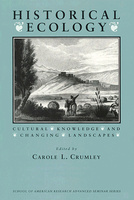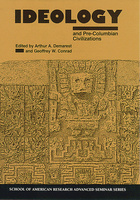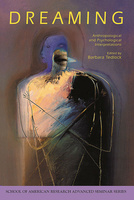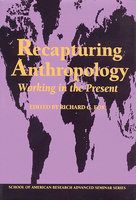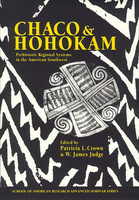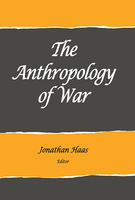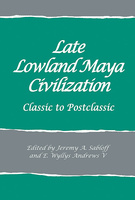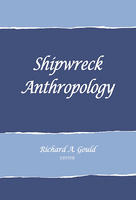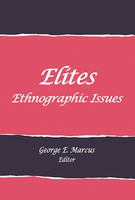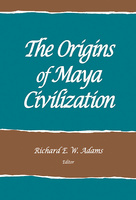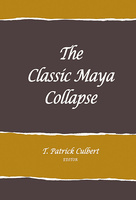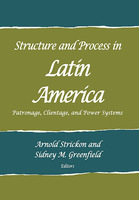Memory, History, and Opposition under State Socialism
Eight anthropologists, sociologists, and historians probe the oppositional narratives created by Chinese rural intellectuals, èmigrè Croats, and organized dissenters such as the Djilas of Yugoslavia who constructed and maintained oppositional histories in state socialist societies.
Themes in Southwest Prehistory
Two dozen leading archaeologists isolate a number of themes that were central to the process of increasing complexity in prehistoric Southwestern society, including increased food production, a greater degree of sedentism, and a dramatically increasing population.
Historical Ecology
Cultural Knowledge and Changing Landscapes
Environmental change is one of the most pressing problems facing the world community. In this volume, the authors take a critical step toward establishing a new environmental science by deconstructing the traditional culture/nature dichotomy and placing human/environmental interaction at the center of any new attempts to deal with global environmental change.
Ideology and Pre-Columbian Civilizations
Employing data from central Mexico, the Maya area, coastal Peru, and highland Peru and Bolivia, directors of several major archaeological field projects interpret evidence of prehistoric ideology and address the question, has ideology any relevance in the reconstruction of prehistory?
Dreaming
Anthropological and Psychological Interpretations
The ten contributors to this book-anthropologists and psychologists-explore the ways in which dreams are remembered, recounted, shared (or not shared), interpreted, and used by people from New Guinea to the Andes. The authors take a major step toward moving the study of dreaming from the margins to the mainstream of anthropological thought.
Recapturing Anthropology
Working in the Present
The ten papers in this volume offer different versions of how and where anthropologists might work usefully in today's world, converging on the issue of how anthropology can best recapture the progressive character its basic concepts, such as "culture," once had.
Chaco and Hohokam
Prehistoric Regional Systems in the American Southwest
Synthesizing data and current thought about the regional systems of the Chacoans and the Hohokam, eleven archaeologists examine settlement patterns, subsistence economy, social organization, and trade, shedding new light on two of the most sophisticated cultures of the prehistoric Southwest.
The Anthropology of War
This edited collection contains important new material on the origins and role of warfare in “tribal� societies. The chapters focus on a number of basic research issues, including war and social evolution, causes of war, ideology of war, and European transformation of indigenous warfare patterns.
Late Lowland Maya Civilization
Classic to Postclassic
This book is a series of essays that offers a framework for the study of lowland Maya settlement patterns, surveying the range of interpretive ideas about ancient Maya remains. Suggesting hypotheses to guide future research, the articles discuss historical, geographical, chronological, and theoretical matters.
Shipwreck Anthropology
"Shipwrecks are part of the legitimate domain of anthropology and can produce results that are as significant for our ability to explain variability in human behavior as any other kind of archaeology, whether it deals with stone tools in a European Paleolithic rockshelter or ceramics contained in a sixteenth-century Spanish shipwreck." So argues Richard A. Gould, the editor of this volume originating from a 1981 School of American Research advanced seminar.
Elites
Ethnographic Issues
This book is a collection of essays focusing on the role that elites play in shaping modern societies. Critiquing the treatment accorded elites as subjects in recent Western social thought, the essays reflect upon past results and explore directions in the investigation of elite groups by anthropologists.
The Origins of Maya Civilization
The contributors to this book scrutinize the data, survey external influences on the early Maya, and consider economics, ecology, demography, and warfare - as well as social and ideological factors - in explaining the transformation of Maya culture from a village-oriented society to one centered on elite classes living in large civic centers with monumental architecture.
The Classic Maya Collapse
Of the many mysteries surrounding ancient Maya civilization, none has attracted greater interest than its collapse in the eighth and ninth centuries AD. Until recently, speculations on the causes of the collapse have been more numerous than excavated sites in the area. But the past twenty-five years have produced many new findings. In this book, thirteen leading scholars use new data to revise the image of ancient Maya civilization and create a new model of its collapse--a general model of sociopolitical collapse not limited to the cultural history of the Maya alone.
Structure and Process in Latin America
Patronage, Clientage, and Power Systems
This book provides analysis of social anthropology and approaches to the study of patronage and clientage from work done in Latin America in the late 1960s. Essays include discussions on topics as diverse as the effect of societal structures on the actions of individuals and communities wherein women play the roles of both patrons and clients.

